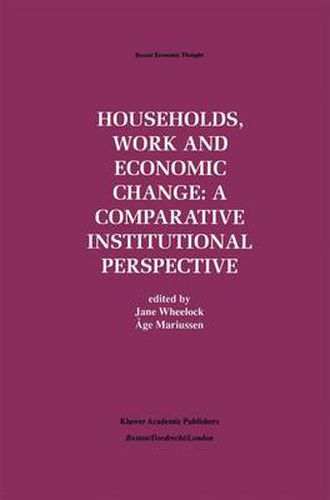Readings Newsletter
Become a Readings Member to make your shopping experience even easier.
Sign in or sign up for free!
You’re not far away from qualifying for FREE standard shipping within Australia
You’ve qualified for FREE standard shipping within Australia
The cart is loading…






This title is printed to order. This book may have been self-published. If so, we cannot guarantee the quality of the content. In the main most books will have gone through the editing process however some may not. We therefore suggest that you be aware of this before ordering this book. If in doubt check either the author or publisher’s details as we are unable to accept any returns unless they are faulty. Please contact us if you have any questions.
Arguing that contemporary economic and political change make household level behaviour increasingly significant in the economy, this text investigates interrelations between household and economic change. The conclusions which emerge from these investigations would be relevant to policy makers in both social democratic and neo-liberal countries. The comparative approach taken in the book is amenable to the application of institutional theory, which is used to analyzse work. The results should be of interest to students of economics, political science, sociology and geography, as well as to research and policy specialists from these disciplines.
$9.00 standard shipping within Australia
FREE standard shipping within Australia for orders over $100.00
Express & International shipping calculated at checkout
This title is printed to order. This book may have been self-published. If so, we cannot guarantee the quality of the content. In the main most books will have gone through the editing process however some may not. We therefore suggest that you be aware of this before ordering this book. If in doubt check either the author or publisher’s details as we are unable to accept any returns unless they are faulty. Please contact us if you have any questions.
Arguing that contemporary economic and political change make household level behaviour increasingly significant in the economy, this text investigates interrelations between household and economic change. The conclusions which emerge from these investigations would be relevant to policy makers in both social democratic and neo-liberal countries. The comparative approach taken in the book is amenable to the application of institutional theory, which is used to analyzse work. The results should be of interest to students of economics, political science, sociology and geography, as well as to research and policy specialists from these disciplines.